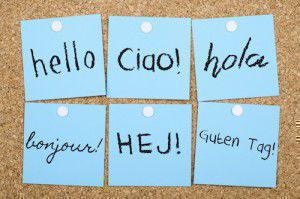Time to say ‘Dyw genes’ to Poldark
I don’t know about you, but here at EuroTalk we’ve been very much enjoying the BBC’s latest Sunday night drama, Poldark. Set in the late 18th century, and based on the books by Winston Graham, it’s the story of Ross Poldark (Aidan Turner), who returns from the American War of Independence to find his father dead and the woman he loves engaged to his cousin. Poldark is an epic love story, with a suitably dashing hero, but it’s also a historical drama about the business and politics of the mining industry in south west England. I can’t speak for its accuracy, but it’s definitely very enjoyable…
Poldark is set on the beautiful coast of Cornwall, and with the series finale airing this weekend, we thought it was only right that we say an appropriate farewell. So whether you’ve always fancied learning a little Cornish, or, like us, you’re a fan of the lovely Ross, here’s your chance.
How did you do?
Want an opportunity to try out what you’ve learnt? Read Nat’s post on 10 reasons to visit Cornwall.
And if you haven’t had a chance to enjoy Poldark, and you’re wondering what all the fuss is about, check out the trailer.
8 ways to feel confident about speaking a language
So you’re off on holiday, and you’ve decided you’re going to speak a bit of the local language. You get a EuroTalk program (obviously), start learning a few key phrases, and you’re feeling good.
But then you get off the plane and the doubts start to creep in. What if people laugh at your accent? What if you say what you need to say perfectly, but don’t understand the reply? What if you open your mouth and instantly forget everything you’ve learnt?! Probably safer to stick to English, or sign language. Right?
 It is scary starting to speak another language. I get incredibly nervous – more so, ironically, with Spanish, which is a language I studied for years but haven’t spoken properly for a while. But sometimes you just have to throw yourself into it and see what happens. The worst that’s going to happen is that you don’t understand each other, but the reality is nobody’s going to laugh at you for trying to speak their language, or blame you if you make a mistake.
It is scary starting to speak another language. I get incredibly nervous – more so, ironically, with Spanish, which is a language I studied for years but haven’t spoken properly for a while. But sometimes you just have to throw yourself into it and see what happens. The worst that’s going to happen is that you don’t understand each other, but the reality is nobody’s going to laugh at you for trying to speak their language, or blame you if you make a mistake.
Now, obviously I realise ‘just throw yourself into it’ is a lot easier said than done. So here are some tips to help your confidence, before and during your conversation.
Go prepared
Bit of an obvious one, but you should try and learn at least a few words, so that you’re not going in to the conversation completely unprepared. At least that way you start off in control. It’s probably a good idea to learn how to say ‘I don’t understand’ and ‘please speak more slowly’ as well; at least that way if you do get stuck you’ll be able to do something other than stare blankly.
Find a language partner to chat to before you go
Learning on the computer or your phone is great for learning vocabulary and perfecting your accent, but at the end of the day, learning a language is obviously about conversation. If you’ve got a friend who speaks the language you’re learning, or is learning as well, set aside some time regularly to chat with them. It’ll be easier with someone you know and feel comfortable with than with a stranger, as you won’t be so worried about making mistakes.
Take uTalk with you
Because if your mind goes blank, you can grab your phone and search for the word you need in seconds. uTalk is much quicker (and better-looking) than a phrasebook, and it tells you how to say the word as well. Bonus.
Ban yourself from speaking your own language
I recently discovered Scott Young’s blog; he and a friend just spent a year travelling around four different countries, attempting to speak no English and immerse themselves completely in the local language and culture. This might seem quite drastic, but I can’t think of a better way to feel confident quickly – given a choice between speaking to people in another language or not speaking to anyone at all for three months, I know which one I’d choose.
Try thinking in the language
I’ve tried this approach before in Spanish and found it quite effective. When you look around your house, try and think what the objects are called in the language you’re learning, rather than English. (FlashSticks are useful for this sort of thing.) Try and think about a TV show you just watched, and explain it to yourself in the other language. Go outside and try to name as many everyday sights as you can. This way, it starts to feel like second nature and you may be surprised to find yourself doing it without trying.
Focus on how good you’ll feel afterwards
Have you ever had a conversation in another language? Remember how good you felt afterwards, when you were holding the train ticket you’d just bought, or eating the meal you’d just ordered? Any time you feel hesitant about starting a conversation, focus on that feeling and push on through. It’ll be worth it.
Make a phone call (a.k.a. jump in the deep end)
When I was at university, I spent my third year living in Madrid, and during my first few days I had to make lots of phone calls to try and find somewhere to live. And it was terrifying. I’m not really a fan of the phone at the best of times, but making calls in another language was twice as scary – without the aid of body language or facial expressions, it suddenly becomes a lot harder to understand what someone’s saying to you. But I did it, because I had to, and managed to successfully arrange several viewings; I’d never have thought I could do that before I left home.
And, if all else fails…
Have a drink
It’s a well-documented fact – mostly among students, for some reason – that having a drink or two actually improves your language skills. While that may not be entirely true, it does make sense that when you’re feeling relaxed, and your inhibitions are lowered, you’re going to feel more confident about giving it a go. Don’t have too many drinks though, obviously, or then nobody will understand you in any language.
Good luck!
Do you struggle with confidence when you’re speaking another language? How do you deal with it?
Liz
A Language Journey
Today we’ve got a fantastic guest post from Kelly Wang – English teacher, accidental traveller, cake whisperer, dinosaur believer – on her personal language learning journey.
If you’ve got a language story to tell, we’d love to hear it! Now over to you, Kelly…
My journey through languages began in sequins and shoulder pads.
At the age of seven I remember clutching a Pot Noodle (Chow Mein flavour, if you must know), with an A4 pad in front of me and one of those 10 coloured pens ready and poised, waiting for the Eurovision Song Contest.
It has long been a tradition in my family to watch the Eurovision together, and to give marks out of ten to the acts. And at that age, I was of the opinion that English was the only language in the world, so my marking scheme would include whether or not the songs were in English. No English? Nil points.
I even took exception to the fact that each country when giving their own points spoke in their own language. How rude.
Fast forward to the last year of primary school and we learnt a few French words like bonjour and le livre and la fenêtre.
I still thought English was the best language.
But then, on reaching secondary school, when we started to learn a ‘modern foreign language’ regularly (in my case, French), I loved it. I loved the idea of being able to speak to everyone, no matter the language. And better than that, I was picking it up pretty easily.
The following year there was a repeat performance with learning German, and I remember a sort of teenage arrogance of thinking that languages were going to be ‘my thing’, because by the time I was sixteen I could also say Θέλω να πάω σπίτι in Greek – Thélo̱ na páo̱ spíti (I want to go home).
Over the years I’ve flirted with a lot of languages. I tried Chinese for a while, but with the complicated tonation, I was more worried about causing offence with the way I said a word, and less worried about actually stringing a sentence together.
And then, I found my true language love. The one language I could lose myself in and spend hours learning just for fun. The one language I would squeal over if I heard it spoken in public. Which is Finnish. Naturally.
Finnish may sound like an odd choice, but it made perfect sense to me. What started with a passing interest listening to Finnish metal music erupted into a bit of an obsession when I found myself frustrated that I couldn’t understand the Finnish ice hockey commentary.
For almost two years, Finnish became my number one hobby. Being relatively self-disciplined when it comes to studies, I decided to learn through a mix of self study and online language exchanges. Many an adventure was had along the way, and that perhaps is a story for another time, but I loved it. No prepositions to learn because everything was a suffix, and by changing the word ending you could say a whole range of things about it: saunassa, saunasta, saunan (in the sauna, from the sauna, for the sauna). No articles, no need to wonder if your table was a girl and your chair was a boy, it didn’t matter. Neither did you have to refer to a person as he or she, one simple han and it was covered! Beautiful.
Fast forward another year, and I found myself attempting to get to grips with Hungarian. Now for those of you who don’t know, Finnish and Hungarian are cousins of the language world, and it depends on which scholar you speak to as to how close a family they are. My experience was that whilst it sounded an awful lot like Finnish, Hungarian was nothing like it at all, except for the odd words like toilet: Hungarian – vécé, Finnish vessa.
And currently, I find myself in Spain. Adamantly not learning the language.
Because the problem now, with being a ‘jack of all trades, master of none’ when it comes to language, is that they all get tangled up. A waiter asks me if I want a refill, I answer in a mix of Spanish and Hungarian. I overhear staff in my local Chinese supermarket and confuse them – and myself – by responding in Chinese rather than Spanish. And recently on a stopover in Paris, I managed to respond to questions in French but found myself asking questions in Finnish.
What I really could do with is a babel fish. Or to live in the TARDIS. Unfortunately, I am in the wrong reality for that. But. I still love languages.
So. I don’t know what the foreign language for me is going to be. Should I return to French, attempt to master Finnish, or take up something new like Dothraki? Or will that lead to more unnecessary tongue twisting? I just don’t know. Would you like to join me on my journey?
Kelly
Introduction to: Tok Pisin
Halo! Nem blo mi em Nat. Gutpela lo meetim yu!
Or, in English: Hello! My name’s Nat. Nice to meet you!
Today we’re having a short introduction to Tok Pisin (literally, ‘Talk Pidgin’), one of the three official languages of Papua New Guinea (along with English and Hiri Motu).
We recently recorded Tok Pisin for our uTalk app (coming in the next update), with our delightful voice artists Rhonda and Patrick, and I was intrigued by how the language works. Tok Pisin grew up out of a country teeming with hundreds of other languages – even today, there are still over 800 languages spoken in PNG. Tok Pisin developed as the lingua franca, a common tongue everyone could use for trade and communication. Nowadays, it is a language of instruction in schools and the mother tongue of over a million people, with millions more speaking it as a second language.
Beyond a doubt, Tok Pisin is a complex language with plenty of grammar rules to learn, but I am reliably informed that after a few weeks of immersion you would start to pick up the basics, and even during our recording session I was recognising some logical constructions in the language. For example, we have:
hausik (house sick – hospital)
haus moni (house money – bank)
haus krai (house cry – mourning house)
haus kaikai (house eating – restaurant)
Once you pick up a few basic elements, it all seems to make a little bit more sense:
Wara is ‘water’, so you can see how solwara (‘salt water’) means ‘sea’.
Liklik is ‘small’, so you can see that liklik prais (‘little price’) is ‘cheap’.
Liklik maunten (‘little mountain’) is a ‘hill’.
And:
Ples blong means ‘the place of’, so ples blong waswas is a bathroom.
Ples blong silip is somewhere you sleep.
Ples blong kaikai is a dining room, or somewhere you eat.
My favourite construction is the suffix –pela (apparently from the English ‘fellow’), which modifies nouns and adjectives. So although wan is simply ‘one’, if you’re qualifying a noun then it becomes wanpela: ‘one doctor’ is wanpela dokta. Similarly ‘big’ is bikpela, ‘this’ is dispela, ‘good’ is gutpela, ‘we’ is mipela, ‘you’ is yupela, strong is strongpela.
Knowing all this, can you work out what this sentence means? Tell us your suggestions in the comments, and we’ll reveal the answer tomorrow…
Dispela wara ino gutpela blong drink.
If you’re finding that you’re as captivated as I was, and you’d like to learn a bit more, get one of our Tok Pisin products and start learning!
Nat
(Answer: This water is not safe to drink.)






